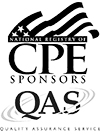Issues in Developing a Global Compliance and Ethics Program

Intermediate
Online
Description
Increased economic activity in emerging markets has created many issues to which global organizations are struggling to adapt. There is no one-size-fits-all approach to creating a global compliance and ethics program.
This course will educate you on the issues you might encounter when developing a successful global compliance, ethics and anti-fraud program that spans multiple countries, and will provide you with ways to overcome them.
Key Takeaways:
- How to address compliance violations
- How to ensure the program remains effective
- Recognizing cultural differences
- How to establish effective global policies
- Importance of fraud risk assessments when developing a global program
Prerequisites
Basic understanding of anti-fraud, compliance and ethics programs
You Will Learn How To:
Examine why a global compliance, ethics and anti-fraud program is needed
Identify common challenges and issues when developing a global program
Identify issues in developing consistent standards of behavior globally
Recognize the importance of monitoring and assessing a global compliance, ethics and anti-fraud program
Identify ways to deal with compliance and ethics violations
Table of Contents
| Lesson 1 | Why Develop a Global Compliance, Ethics, and Anti-Fraud Program? |
|---|---|
| Lesson 2 | Common Challenges Faced When Developing a Global Program |
| Lesson 3 | Recognizing Cultural Differences When Developing a Global Program |
| Lesson 4 | Issues in Developing Consistent Standards of Behavior Globally |
| Lesson 5 | Effective Corporate Governance |
| Lesson 6 | Global Policies |
| Lesson 7 | Fraud Risk Assessments |
| Lesson 8 | Compliance and Ethics Training |
| Lesson 9 | Global Whistleblower Program |
| Lesson 10 | Confidentiality and Privacy Laws |
| Lesson 11 | Addressing Compliance Violations |
| Lesson 12 | Monitoring the Program |
| Lesson 13 | Ongoing Assessment and Awareness |
CPE Information
| CPE Credit: | 2 |
|---|---|
| NASBA Information: | Behavioral Ethics |
| Advanced Preparation: | None |
| Last Updated: | May 2022 |
| Delivery Method: | QAS Self-Study |
Policies
CPE Credit
Please note: To be eligible for CPE credit, you must complete the final exam within one year of purchase date. You may only claim CPE credit for a course once.
ACFE Online Self-Study Courses
Features:
- 24/7 access to courses through your Internet browser
- Save time and quickly earn CPE credits with instant access, grading and printable certificate
- The flexibility to start or stop a course and pick-up right where you left off
- No additional shipping fees
Learn More about accessing your online self-study course
Learn More about online self-study courses and their features
System Requirements:
- Internet access: High-speed connection recommended
- Speakers required for video sound
 The Association of Certified Fraud Examiners, Inc. is registered with the National Association of State Boards of Accountancy (NASBA) as a sponsor of continuing professional education on the National Registry of CPE Sponsors. State boards of accountancy have final authority on the acceptance of individual courses for CPE credit. Complaints regarding registered sponsors may be submitted to the National Registry of CPE Sponsors through its website: www.nasbaregistry.org/.
The Association of Certified Fraud Examiners, Inc. is registered with the National Association of State Boards of Accountancy (NASBA) as a sponsor of continuing professional education on the National Registry of CPE Sponsors. State boards of accountancy have final authority on the acceptance of individual courses for CPE credit. Complaints regarding registered sponsors may be submitted to the National Registry of CPE Sponsors through its website: www.nasbaregistry.org/.
Ordering and Returns
Satisfaction Guarantee
If you are not 100% satisfied with any ACFE product, you may return it to us, provided it is in excellent condition, for a full refund of the item minus the cost of shipping. Toolkits and bundles may only be returned as a complete set.
Ordering & Returns Policy
